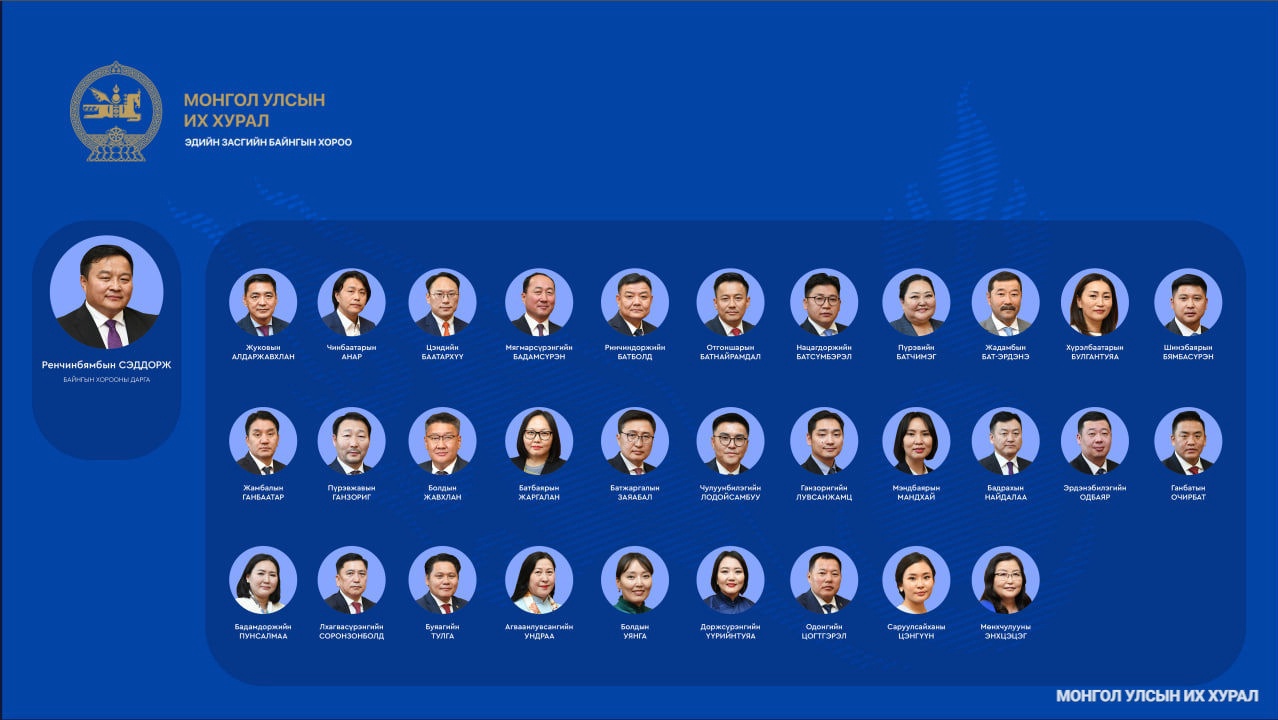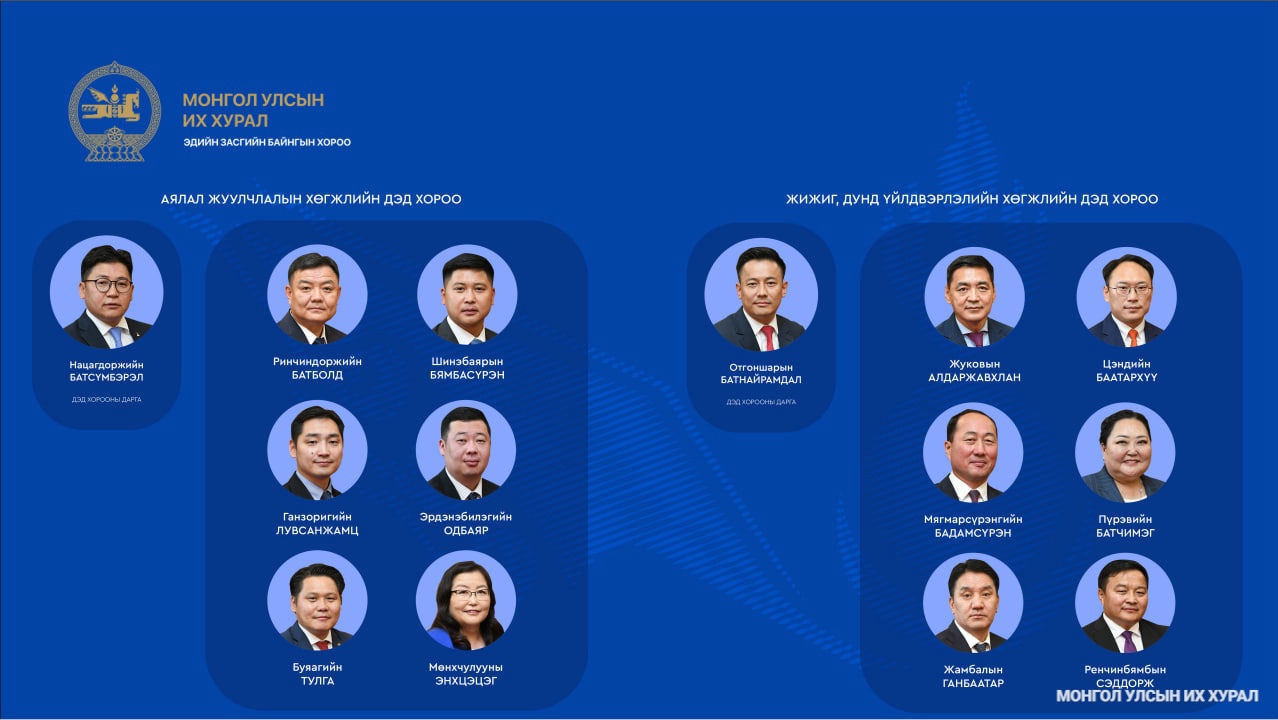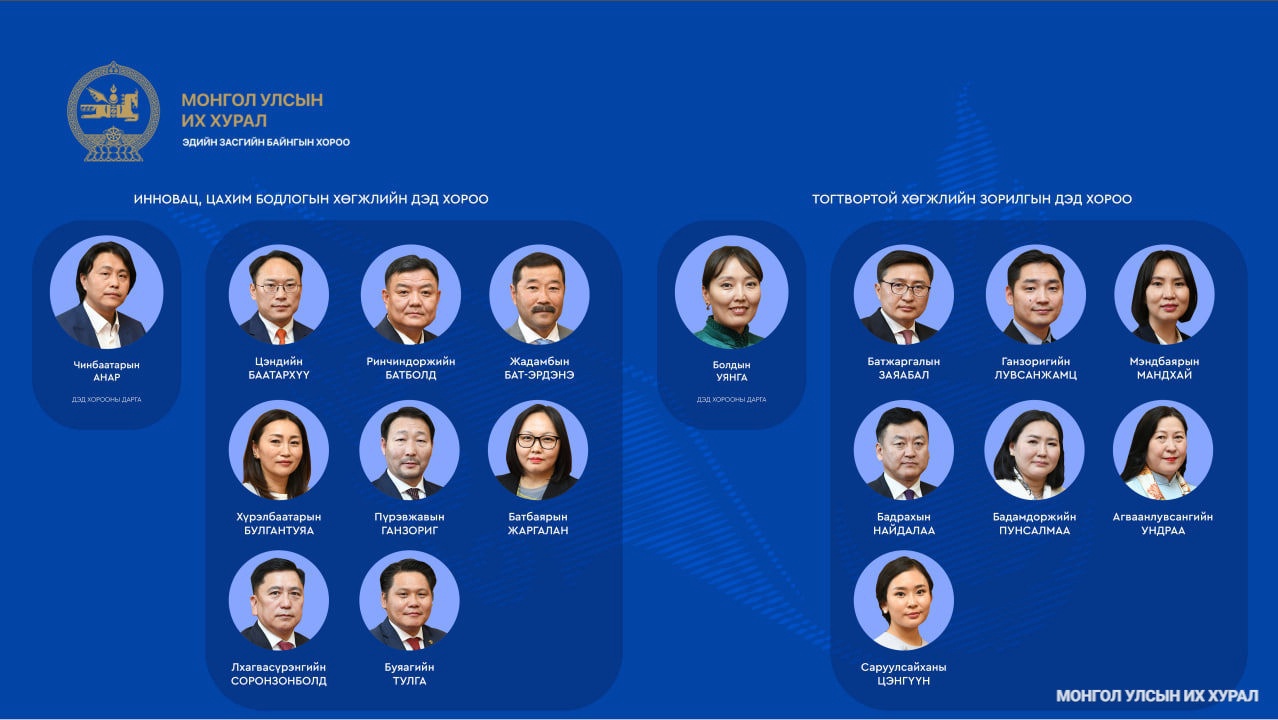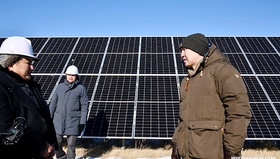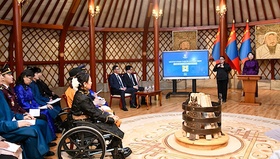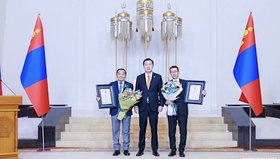In line with the “Three Pillars of Excellence” policy — which aims to establish a comprehensive and coherent legal framework centered on human values and responsive to the country’s rapidly evolving societal needs — the first 126-member State Great Hural (Parliament) adopted the draft amendments to the Law on the State Great Hural of Mongolia during the 2025 Spring Session.
Within this framework, eight standing committees have been established. These committees are mandated to: conduct preliminary review of draft legislation submitted by initiators and present conclusions and recommendations for consideration at the Plenary Session of the Parliament; exercise parliamentary oversight; and develop draft parliamentary resolutions on matters specifically prescribed by law.
According to the Law on the State Great Hural of Mongolia, adopted on 16 May 2024, the Standing Committee on the Economics is responsible for matters concerning domestic and foreign economic policy; development policy and planning; monetary policy of the State, banking and the operations of the Bank of Mongolia; insurance policy; securities policy (except as specified in Article 23.9.8 of the Law); state property governance, regulation, and privatization; unified policy on foreign investment; mineral exploration, geological surveys, and extraction policy; oil and natural gas; investment and service promotion policy; competition policy and measures to restrict unfair competition; state support policy for entrepreneurship; standardization, metrology, and quality assurance; regulation of official statistical activities; urban planning and construction; fuel and energy; road transport and postal services; housing and public utilities; tourism development strategy; tourism infrastructure development; and land use efficiency policy.
As per the amendments to the Law on the State Great Hural of Mongolia, adopted on 9 July 2025, the areas of responsibility of the Standing Committee on the Economics were expanded to include the policy areas previously under the Standing Committee on Industrial Policy and the Standing Committee on Innovation and E-Policy. These include: policies to support and develop small and medium-sized enterprises; light industry development policy; heavy industry development policy; e-governance policy and activities; information technology development; communications policy and activities; digital transformation and technological modernization; high technology and national innovation policy; policies to promote innovation in production and services to increase economic efficiency and support private sector participation; and the development of innovation infrastructure and operations.
In accordance with the same amendment, the membership of standing committees was set at up to 32 MPs. The Standing Committee on the Economics will thus operate with 32 members.
A standing committee may establish subcommittees to oversee specific areas within its mandate. The Standing Committee on the Economics has established four such subcommittees, each tasked with overseeing distinct policy domains under the committee’s jurisdiction.
Specifically:
- The Subcommittee on the Development of Tourism is responsible for matters related to tourism development policy;
- The Subcommittee on the Development of Small and Medium-Sized Enterprises focuses on the promotion and development of small and medium-sized enterprises;
- The Subcommittee on Innovation and E-Policy Development is tasked with supporting and advancing high technology and national innovation, facilitating their integration into production and services, and overseeing digital development policy;
- The Subcommittee on Sustainable Development Policy is responsible for ensuring the integration of Mongolia’s SDGs into legislation, development policies, and planning documents, and for monitoring their implementation.
Subcommittees are authorized to carry out research within their respective areas of responsibility; obtain relevant information; request explanations from competent officials, citizens, and organizations; establish working groups; and draft other parliamentary decisions as necessary. They may issue recommendations and conclusions to the relevant standing committee, and—if required—submit them for discussion at a Plenary Session through the standing committee. Subcommittees are also empowered to adopt resolutions on matters within their jurisdiction.

 Eng
Eng  Монгол
Монгол